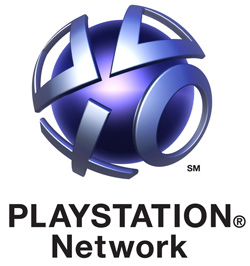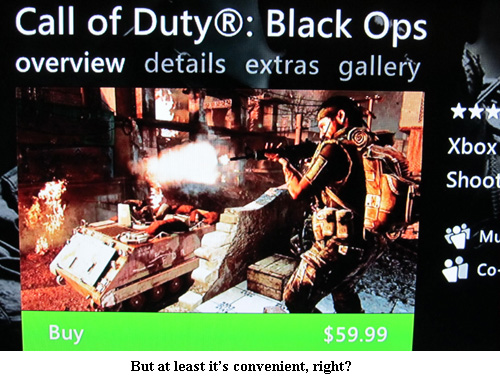This post has not been edited by the GamesBeat staff. Opinions by GamesBeat community writers do not necessarily reflect those of the staff.

Digital media robs consumers of the most fundamental of property rights: what’s mine is mine. For publishers, it’s win-win: reduced overhead, no first-sale doctrine, and a dead secondary market. For consumers, it’s a Faustian bargain: convenience in exchange for the forfeiture of ownership rights.
Some consider this a fair exchange. A recent IGN editorial got my blood boiling. “Death of the Disc-Based Game” posits digital distribution as the panacea to exorbitant budgets, high retail prices, and used game sales. It’s disheartening for a games journalist to advocate the destruction of the secondary market. What’s worse is how blithely Mr. Onyett shrugs off fundamental property rights:
“Sure some enjoy using their money to purchase a physical product, but as has been proven time and again across different industries, there's no sense in clinging to what's worked in the past.”
Translation: get with it you Luddite dinosaurs!
 Games journalists should be leading the charge for consumer rights. Too often, they extol the virtues of digital distribution without discussing the inherent moral quandaries. Property rights are superseded by the march of technological progress.
Games journalists should be leading the charge for consumer rights. Too often, they extol the virtues of digital distribution without discussing the inherent moral quandaries. Property rights are superseded by the march of technological progress.
OnLive, PSN, and X-Box Live exist for the sole purpose of destroying the secondary market. Publishers can yammer on about reduced overhead, rising development costs, and piracy, but it all boils down to used game sales. The first-sale doctrine is an impediment to them, so they circumvent it.
Instead of selling their software, they “license” it. You can’t resell what you don’t own. Cloud gaming services like OnLive go one step further: they only grant a temporary license. That’s right. You can pay Best Buy $60 for a physical copy, or pay OnLive the same amount for an extended rental.
The ultimate goal is the destruction of physical media. Failing that, publishers will punish those who cling to “outdated” technology. Ubisoft and Blizzard both instituted draconian DRM requiring an always-on internet connection for single-player games. The message is clear: buying a game doesn’t give you the right to play it. Only we do.
We’ve been through these shenanigans before with e-books. Because e-books are licensed, publishers declare the first-sale doctrine inapplicable. The Kindle 1984 fiasco drove that point home. Consumers don’t “own” e-books; thus, their license can be revoked at any time. Forget the secondary market. You can’t sell what you don’t own, and even if you did, the logistics are daunting—how do you resell a digital file?
E-readers allow lending, but under highly-restrictive terms dictated by the publishers. Borrowing a friend’s paperback is as simple as extending your arm. By a show of hands, who’s borrowed a friend’s game?
But at least the “reduced overhead” is passed on to consumers, right? That’s a negative, ghostrider.

Call of Duty: Black Ops list price: $59.99. XBL price: $59.99. Halo Reach list price: $59.99. XBL price: $59.99. Quite a difference! Buying used nets substantial savings, but don’t tell publishers. They consider the secondary market equivalent to piracy. This is tantamount to a declaration of war.
It’s imperative that gamers hold the line on this issue. We mustn’t sacrifice fundamental property rights at the altar of convenience. In the end, we all lose.
